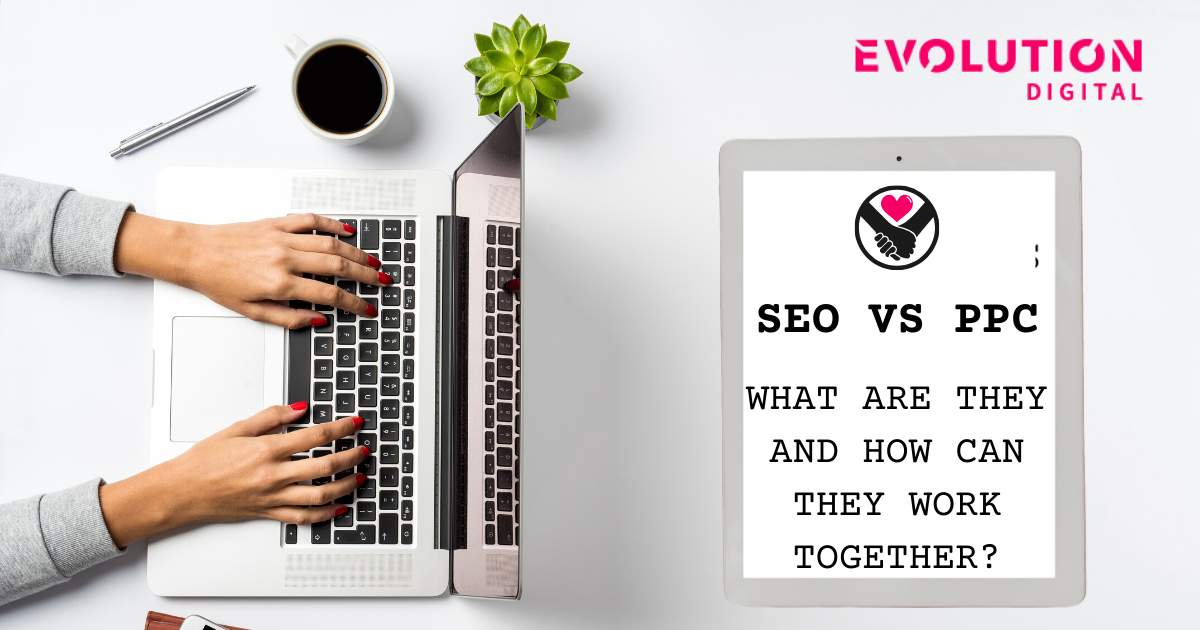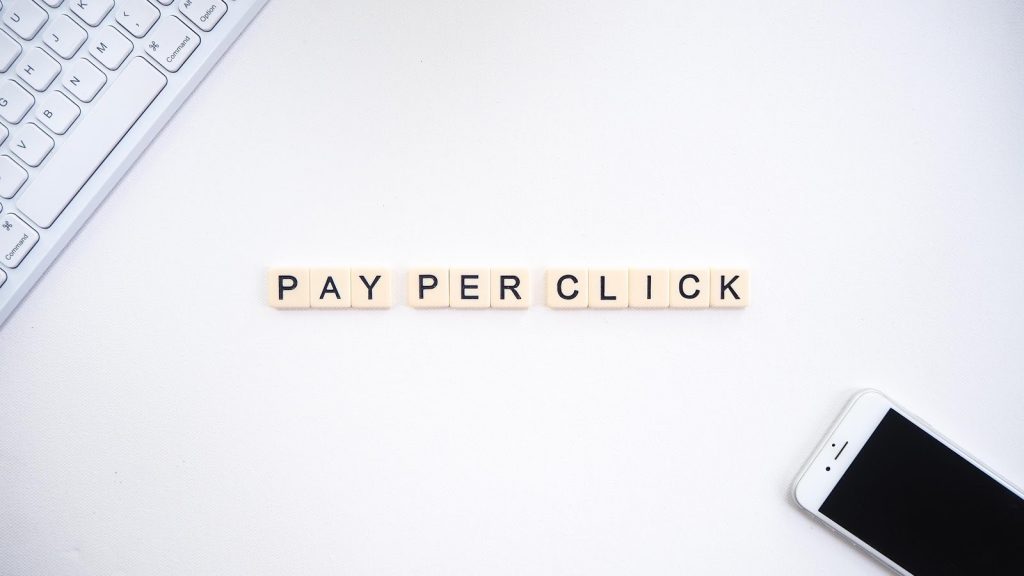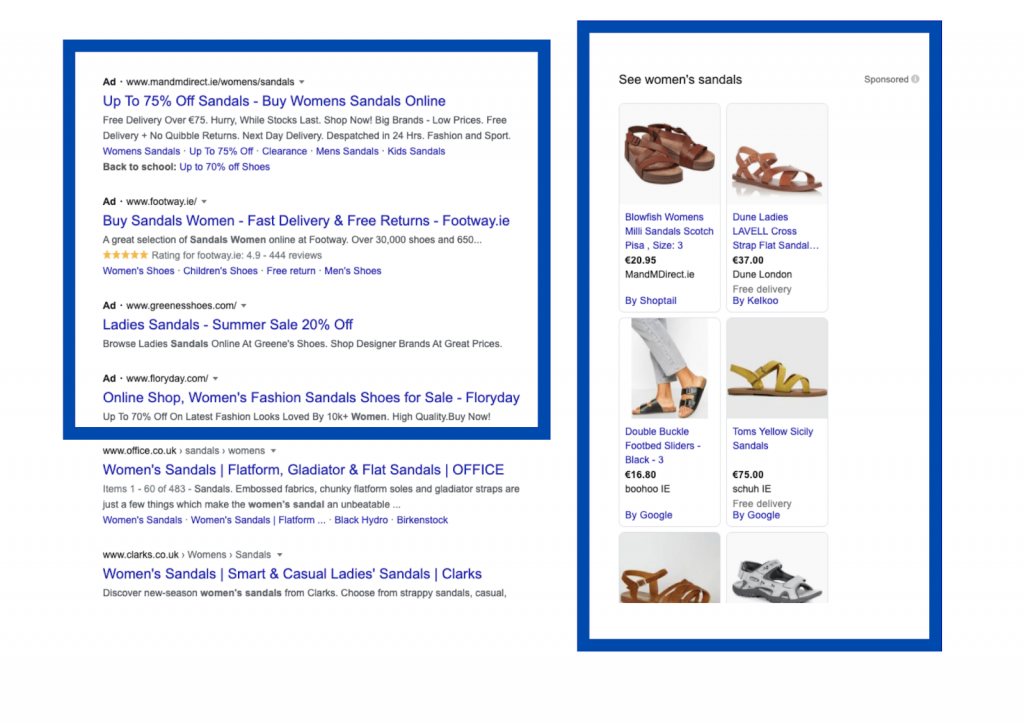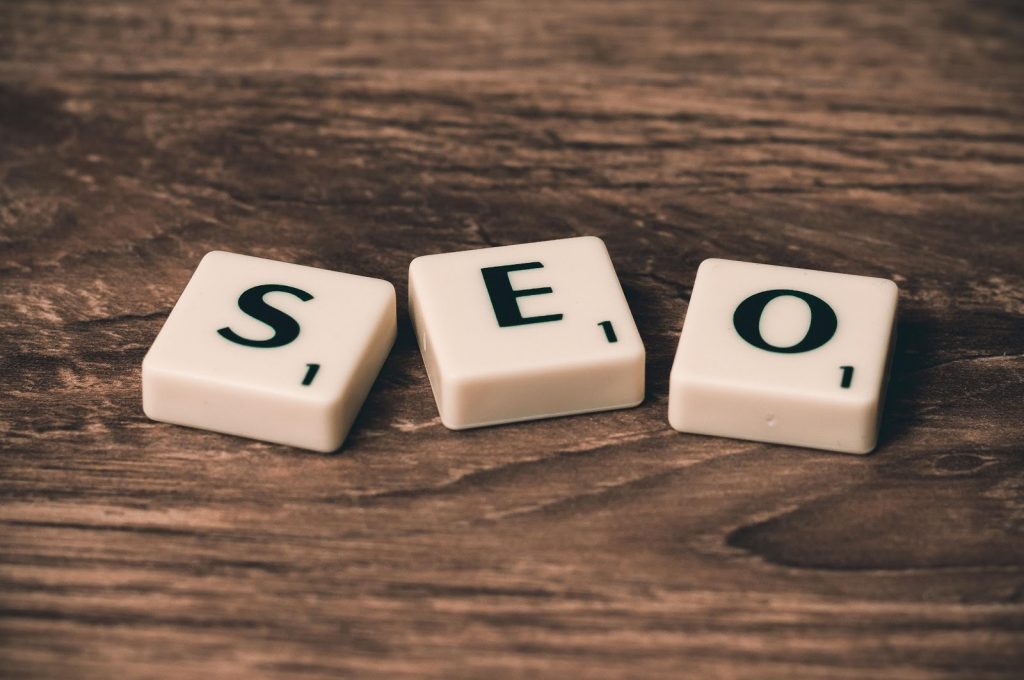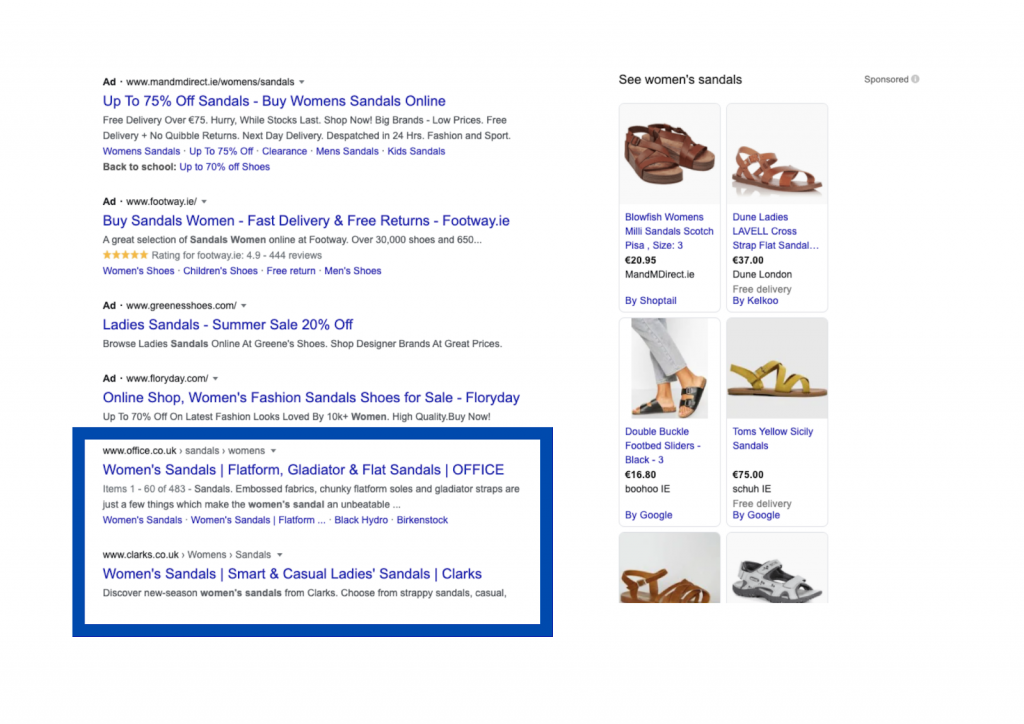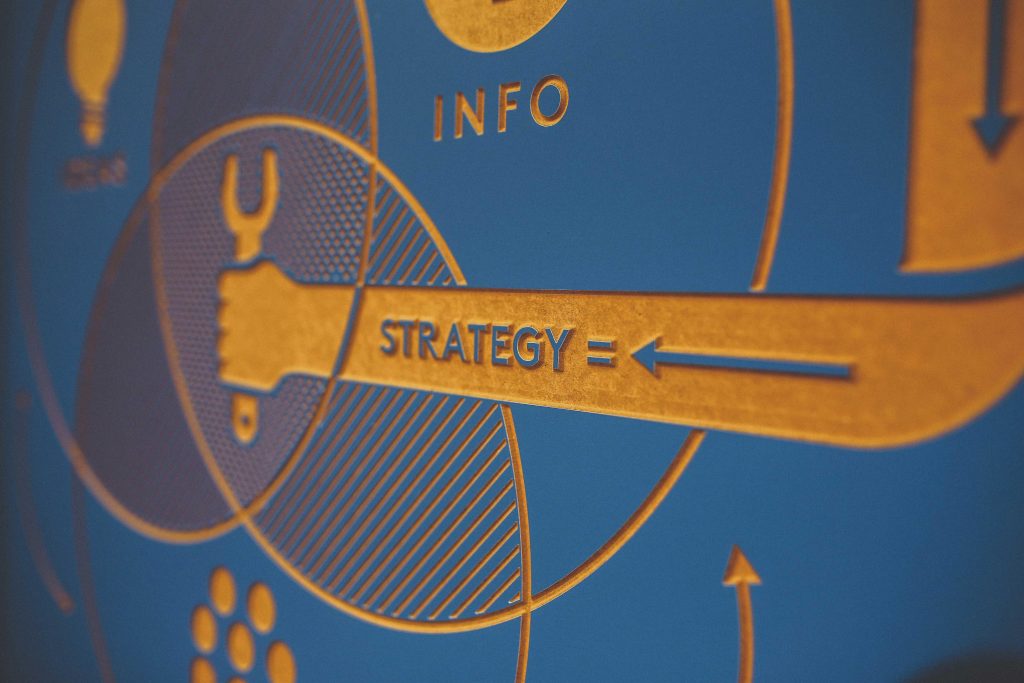Are you finding it hard to wrap your head around PPC and SEO? Wondering what the pros and cons of both are? Looking for someone to tell you if you should be focusing on PPC or SEO? Well, look no further, we break it all down for you in our PPC vs SEO showdown!
What is PPC?
PPC is the advertising which features at the top and sides of SERPs on the likes of Google and Bing. It’s called pay-per-click as you pay each time the ad is clicked on. PPC involves bidding on specific words or phrases known as keywords. For example, if you sell women’s shoes you may bid on the keyword ‘Women’s sandals’ to advertise your range of sandals. The amount you pay for a click on this ad will depend on the competition of the keyword (i.e. how many other companies are bidding on it) as well as other factors including seasonality and page quality score. Some keywords are affordable. Other keywords cost much more due to a larger number of companies bidding on them.
What is SEO?
SEO, or Search Engine Optimisation, encapsulates the many practices to increase the visibility of a website in a search engine’s unpaid results. It helps to increase the quality and quantity of traffic that reaches the website organically. SEO includes creating high-quality content that is appealing to prospective customers and using keywords related to your website in content, headings and tags. It also involves receiving external links to your website and improving technical elements including page speed, website architecture and URLs. Search engines have algorithms that determine the quality and relevance of a webpage which leads it to rank accordingly. It is important to uncover what is deemed important by search engines, keep on top of updates in algorithms and to optimise your website according to this.
The Difference Between SEO & PPC
There are some clear differences between SEO & PPC.
- PPC ads appear at the top of SERPs above the organic listings. Traffic from these ads have a cost per click.
- SEO influences the positioning of organic results. Traffic that reaches your website through these organic results is technically* free. *We say technically as we must consider the cost of the work that has gone into SEO to ensure that the web page ranked high organically so that potential customers would click on the result. The traffic is free but SEO itself is not. However, in simple terms, for SEO you do not pay per click received.
What are the Similarities between SEO & PPC
Although, PPC and SEO have many differences they also share some common elements.
- Both aim to drive traffic to a website, PPC does so through paid means while SEO does so through a series of practices to increase organic ranking.
- Both PPC and SEO are driven by keywords. Keyword research is vital in a PPC strategy to identify and bid on words and phrases that have the greatest chance of leading to clicks and ultimately conversions. This is carried out by considering the search volume, competition and intent of keywords. For example ‘women’s sandals for sale’ displays a higher purchase intent than ‘reviews of women’s sandals.’ For SEO, keyword research is important to discover which words and phrases to use in titles, alt text and content to increase organic ranking. What keywords are relevant to the website and which keywords will attract a high quality and quantity of visitors. Keywords selected for both PPC and SEO help to get a targeted audience through the search engine to your website. Both PPC and SEO require careful keyword consideration and penalise ‘keyword stuffing.’
So, now you know what PPC and SEO are but what are their pros and cons?
The Pros & Cons of PPC
PPC Benefits:
- Targeted: You can advertise directly to people who are actively seeking out the products and/or services you offer. You can also target specific languages, locations, devices and audiences through Google Ads & PPC
- Measurable ROI: PPC has a measurable ROI, with metrics such as impressions, reach, clicks and conversions trackable through the ad platform where the PPC ad was created e.g. Google Ads.
- Payment: You only pay when people click on the ad, hence the term pay-per-click.
- Ad extensions: Ad extensions can be added to PPC ads including links to other relevant webpages on your site or to the phone number of your company. These increase click-through-rates, pushes competitors further down the SERPs and provides greater visibility and prominence on the SERPs.
- Position: PPC ads most often feature above the fold so a user can see the ads at the top or to the right of the SERPs.
- Budget: With PPC, you can decide how much you want to spend daily on your ads, leading to great budget control.
Pitfalls of PPC:
- Expense: PPC can be expensive in some cases, for example when targeting high search volume, high competition keywords or targeting large areas.
- Time investment: PPC will need considerable investment of time. It’s not just as easy as setting up the campaigns and leaving them to run. Bids, keywords and ad copy will require constant optimisation.
- Skills required: successful PPC advertising requires practice. Therefore, many companies choose to use a specialist agency.
Pros and Cons of SEO
Benefits of Search Engine Optimisation (SEO):
- Brand awareness: SEO practices help improve visibility in search engines for relevant, targeted keywords, increasing brand awareness among potential customers.
- Credibility: Featuring in the organic results on SERPs can increase your credibility among potential customers. Some searchers skip PPC ads and place greater credibility on organic results.
- No Cost Per Click: SEO is not entirely free as ranking high organically will require time and effort but there is no cost per click on a result when compared to PPC advertising. This can make SEO more cost-effective for attracting relevant traffic.
- Customer Centric: SEO is an inbound marketing strategy. It focuses on providing relevant content to customers and considers customer’s intent and needs.
Pitfalls of SEO:
- Time: SEO takes time and achieving high organic ranking will not happen overnight.
- ROI is more difficult to quantify: ROI is more difficult to calculate for SEO than PPC as the time and effort put into SEO is often not quantifiable as a monetary value.
- Constant changes: Search engines such as Google constantly release new algorithm updates which change the ways in which they rank organic results. One change in ranking guidelines and a website which was ranking highly one day could be demoted the next day!
PPC or SEO: Which one should I use?
This is a difficult question to answer and depends on the requirements and situation of a specific business. For example, a newly founded ecommerce store which will be competing with larger, more established retailers will likely struggle if it just relies on organic search initially. In this instance, serious consideration would need to be given to PPC advertising to drive immediate traffic. However, a more local based, small business which is specific to one area may gain greater benefit from SEO. Barrell (2019) found 72% of consumers who conducted a local search went on to visit a store within five miles of them. In order to make the decision if choosing between PPC or SEO, clear goals and a long-term strategy is needed.
PPC & SEO Working Together – a Match Made in Heaven!
Although PPC ads won’t effect a website’s organic ranking and SEO won’t impact on your PPC ads, there are many ways in which PPC and SEO can work together.
Here at Evolution Digital we would ideally recommend implementing both PPC and SEO. It is clear that both have their pros and cons but where one falls short, the other excels. Utilising PPC and SEO alongside each other allows your website to reach its full potential on the SERPs. By running PPC and implementing SEO efforts, your website will appear at the top of the SERPs as a paid ad being the first or one of the first brands seen by the searcher and then again if a searcher skips the ad section and looks at the organic rankings. Having PPC and SEO efforts running in tandem affords a brand the potential to take up a large section of the SERPs, giving you double the exposure and double the chance of clicks.
As mentioned already, keyword research and optimisation are common elements of both PPC and SEO. If PPC was implemented first, then successful keywords from this can be used for SEO purposes. If a company has been optimising their site through SEO prior to implementing PPC then they will have vast keyword data that can help inform their PPC campaign. High performing PPC ad copy can be used to inform organic content on your website. The combined use of PPC and SEO practices helps increase brand awareness. If a person has previously interacted with your PPC advertisement then they will likely remember this experience, if it was a positive one then they will be more likely to click your organic results for similar products/services they are interested in. Even if a searcher doesn’t interact with the PPC ad the ad still helps to create brand awareness.
Google found that even when companies who utilise PPC appear as the first organic result for a keyword, 50% of the clicks they get on their ads were not replaced by clicks on their organic results when the ads were not present. Showing both a PPC ad and an organic result will double the chances of clicks and conversions (Parker, 2012).
Finally, PPC and SEO can be combined through the practice of remarketing. If a visitor to your site is gained through SEO where they consume top-of-the-funnel content or browse items but do not make a purchase, then SEO can be combined with a form of PPC advertising – remarketing. Remarketing can bring these visitors back to complete their purchase through advertising on Google’s Display network, Facebook or other third-party advertising service with specific information relevant to their previous visit to your website. As you will be specifically targeting warm leads with these ads, there is a greater chance of gaining revenue from your investment.
Start Your PPC and SEO with Evolution Digital
An integrated strategy using both PPC and SEO has numerous benefits and is an approach we recommend here at Evolution Digital. However, we acknowledge that the use of both strategies will not be ideal for every business. For those who want high-growth and have optimal time and resources then an integrated approach will provide faster growth and greater exposure than just using PPC or SEO in isolation.
PPC brings immediate results while SEO is a longer term strategy requiring website optimisation and content planning. If you require immediate results then start with PPC but as you scale and grow, SEO is an excellent way to grow even more and capture greater market share. At the end of the day, all digital marketing strategies are focused on what works best for you.
Why not speak to us today so we can help you discover the digital marketing strategy that works best for your business.

